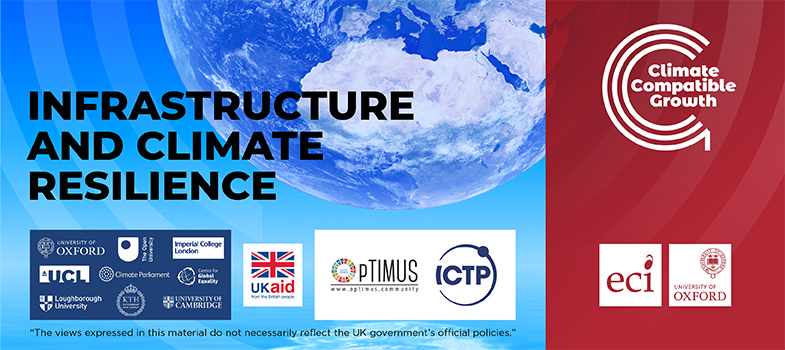Infrastructure and Climate Resilience
Infrastructure systems underpin societies and economies all over the world. Infrastructures are the very systems that enable societies to function: providing potable water supply, electricity, telecommunications, and transport mobility, amongst others. Consequently, appropriate planning of infrastructure systems plays a fundamental role in driving a sustainable and resilient economy in the face of future uncertainty.
The course is delivered in three main modules:
- Infrastructure for sustainable development: Contextualises infrastructure systems within key
global agendas, such as the Sustainable Development Goals (SDGs) and the Paris
Agreement, and describes approaches for setting national visions and targets
and how those may be achieved with particular strategies.
- Infrastructure for climate resilience: Examines the nature of current and future climate
risks to infrastructure systems and services and how these can be modelled and
assessed, and concludes with providing different approaches of how to make
decisions for infrastructure resilience in the face of climate and
socio-economic uncertainty.
- Nature-based solutions for sustainable,
climate-compatible development: Assesses the opportunities for nature-based solutions to protect,
complement or substitute grey infrastructure service delivery in order to underpin
global development agendas.
The course closes with a lecture on the role of the enabling environment in planning and implementing sustainable infrastructure systems, before the final lecture where the whole course is summarised, and key recommendations of actions are made.
This is the November 2023 presentation of the course.


